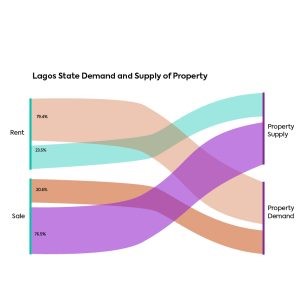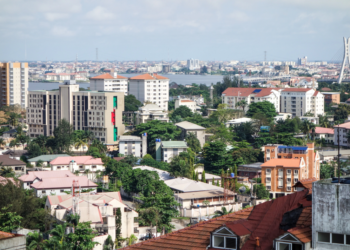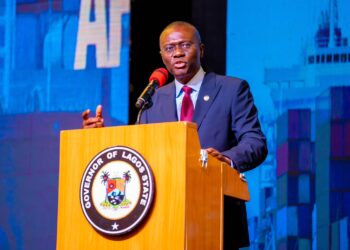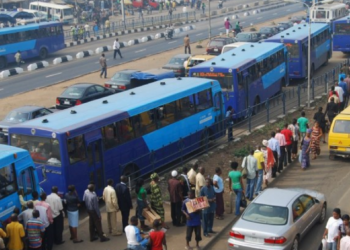In major areas in Lagos, you will find at least one ongoing construction project every 5 kilometres.
With the enormity of construction work in Lagos, the natural expectation is that the housing deficit will have been completely eradicated, or at least close to it, but that is not the case.
Lagos is known to have one of the most active and dynamic housing markets in Africa. Reports and commentaries from the Real Estate Developers Association of Nigeria (REDAN), estimate that approximately 300,000 new housing units are constructed annually in Nigeria and Lagos typically champions more than 10% of new construction projects within the country.
However, despite this high volume of construction activity compared to the rest of the country, the city still faces a significant housing supply deficit. What is really causing the housing deficit that we see in Lagos?
Several factors contribute to this situation such as rapid population growth driven by rural-urban migration, infrastructure challenges, land speculation, financial pressures, and the generally weak “funding and regulatory” landscape in the country.
Lagos is reputably the most stretched housing market in Nigeria with more than 10% of the country’s 210 million estimated population. Since 1967 when the national government created what we now know as Lagos State, the city has experienced exponential population growth.
People from rural areas and other regions of Nigeria migrate to Lagos daily in search of better economic opportunities. This migration has continuously increased the demand for housing, worsening the supply deficit.
Over the years, the demand for affordable housing in Lagos has consistently outpaced the rate of construction by a wide margin, leading to a shortage of affordable housing supply that has continued to widen.
Lagos today, is a densely populated city with limited land for new construction especially within the metropolis.
As the city expands, available land becomes more scarcer and expensive, making it challenging for developers to build enough housing units to meet the teeming demand for affordable housing.
Additionally, inadequate infrastructure, such as roads, water supply, and sanitation, hinder new housing developments.
Developers are hesitant to invest in areas with poor infrastructure, limiting the growth of affordable housing supply.
Over the past years, the inflation on the cost of construction materials and labour has heightened, making it expensive for developers to build affordable housing units.
This cost is often passed on to potential buyers or renters, making formal housing less affordable for potential homebuyers in Lagos who have limited access to affordable mortgage financing.
This has resulted in numerous informal settlements (slums) in Lagos indicating the severity of the issues.
Agreed, the cost input (especially land cost) that goes into projects in Lagos makes it unrealistic to build affordably and close the gap in most locations in the city.
But beyond the glaring cost and regulatory-related challenges, there is a clear mismatch in the demand and supply of housing in Lagos.
Developments are focused on “high-end” projects for a largely “affordability driven” market, and this is widening the housing deficit.
First of all, the rate of housing development does not meet the demand for houses. Secondly, the price tags on the majority of completed developments fall outside what the majority of the populace can afford.
While there is a place for luxury and ultra-luxury projects, Lagos is an “affordable market” because the majority of the population in Lagos are low to middle-income earners who need “affordable to middle-income type” projects to live in.
However, the bulk of the properties that are being built in Lagos are high-end, running in the hundreds of millions of naira or thousands and millions of dollars.
What is really driving the decision to build luxury projects when the demand is within the affordable to middle-income segment?
A typical investor is more interested in projects with a higher yield and more rapid capital appreciation. The high-end properties typically have higher profit margins, are long-term investments, and are generally perceived as more stable during economic downturns.
For others, the motivation can be prestige and branding.
Developing high-end properties can enhance a developer’s prestige and brand image. Creating luxury properties can attract attention, media coverage, and recognition in the industry, which can benefit the developer’s overall business.
These notwithstanding, there needs to be a focus on the luxury market only is making the housing affordability problem worse.
Developers can leverage a mix of high-end and low-end properties to diversify their portfolios.
This will help to mitigate risks, reduce dependence on a single market segment, and leverage the high demand associated with midscale to affordable markets.
The sell-rent ratio for properties listed in Lagos is the reverse of the property seeker’s expectations
More than 50% of residential projects listed on BuyLetLive as of July 2023 are for sale, while less than 40% of properties listed on the platform are for rent.
This data confirms the mismatch in the sell vs. rent dynamics in Lagos. A good argument against this position may be that rental transactions close faster than sales and are therefore frequently delisted.
However, when we did a trend analysis, the data showed that the number of properties listed for sale in Lagos far outweighed the number of properties listed for rent. You may start to ask why this comparison is important. 80% of people looking for houses in Lagos are looking to rent and not buy, as they cannot afford to buy. In essence, over 50% of developments in Lagos are built to be sold, while 80% of people who need properties in Lagos are looking for houses to rent. This is a clear paradox!

Looking at these numbers, we can infer a few things.
The first is a need for intensified joint efforts by the government and the private sector to close the housing gap.
Secondly, with an infant mortgage system’s success, there is a supply of high-end projects that 90% of the population can not afford, as the market is predominantly a lease market by population requirement.
In a market where more than 95% of renters still pay their rent annually, rent remittance is naturally inconvenient in Lagos, and it becomes much more uncomfortable when the annual amount is very high like we have in Africa’s megacity.
Research we conducted in 2022, showed that some households in Lagos are spending as much as 70% of their annual basic income on rent.
For context, the globally acceptable threshold is 30%. The rationale for selling instead of renting provide developers with immediate and substantial profits.
When a house is sold, developers receive a lump sum payment, which can be reinvested into new projects or used to expand their business.
Developers usually see greater potential for ROI when selling properties rather than renting them out. Depending on market conditions, property values appreciate over time, allowing developers to sell at a higher price than their initial investment.
Renting out properties involves ongoing responsibilities, such as property management, maintenance, and dealing with tenants, which most developers are not willing to involve themselves with.
Selling the property transfers these responsibilities to the new homeowners, reducing the long-term risks associated with rental properties.
It is understandable that securing financing for construction projects is a lot easier for developers who plan to sell their houses, especially considering the fact that patient capital is difficult to come by in this part of the world.
Lenders are naturally more willing to provide loans for projects with clear exit strategies, such as selling completed properties.
The glaring mismatch in the market calls for alarm, posing a potential long-term impact on the market in general and specifically hampering the prospect of achieving housing sufficiency.
Our recommendation for solving this problem is to maintain balance.
For developers, maintaining a balanced portfolio of projects across different classifications is a risk management strategy that can prove useful in the long term.
The mismatch in the volume of sales properties compared to rental properties in the market poses a significant impact on the real estate market in Lagos and will further deepen the emergence of shared apartments as people devise alternative ways to meet their housing needs.
It is critical to have a balance, and this is particularly true for a city like Lagos where some residents are spending as much as 70% of their income on rent.
We love your feedback. Let us know your thoughts on this subject. You can also let us know what topic you would like to read about by sending an email to research@buyletlive.com. We will be on standby for your feedback.
























Intelligent analysis and informed commentary.
Thank you Owolabi!
Inspite the housing deficit, Nigerians aren’t wise enough to curb over population in Nigerian, by reducing the amount of babies that they’re cranking out per household. A recipe for housing deficit